The Ukrainian authorities are stepping up pressure on the Ukrainian Orthodox Church. The Kiev-Pechersk Lavra National Reserve announced the termination of the agreement with the UOC on the use of the Lower Lavra, where the residence of the Primate of the Church, Metropolitan Onufry of Kyiv, is located.
The UOC monastery was ordered to vacate the buildings that are on the balance sheet of the reserve until March 29, according to a letter addressed to the monastery. director of the national reserve Alexander Rudnik. The Ministry of Culture confirmed that the actions of the national reserve were coordinated with it. Justification for terminating the contract: “violation by the monastery of the terms of the contract on the use of state property.”
The Church has called the order illegal, comparing it with the actions of the Soviet authorities, and has already made it clear that they do not intend to voluntarily move out. About the scenario in which events can develop, tells Edition “Country”.
The Kiev-Pechersk Lavra has become, one might say, the main point of confrontation between the authorities and the UOC. Since autumn, there has been a serious pressure on the Church. The UOC was declared part of the “fifth column”, allegedly for activities that contribute to the preservation of Russian influence in Ukraine. However, from the first days of the invasion of the Russian Federation, the Church took a position to condemn Russia, to support the authorities and the army in the war, and to this day adheres to this line. In May, the UOC declared complete independence from the ROC and condemned the position of Patriarch Kirill on the war, which was quite positively received by the authorities.
At the same time, relations with the Russian Orthodox Church became noticeably tense, since the Russian Orthodox Church resubordinated the parishes of the UOC to itself in most of the territories annexed by the Russian Federation. But soon problems began with the Ukrainian authorities. On charges of ties or collaboration with Russia, criminal cases were opened against many hierarchs of the Church. The reasons were interpreted by experts and sources in the Church and in the government itself in different ways:
- One of the versions was that these were PR actions of the authorities, which sought to show an intense struggle against the “internal enemy”.
- According to the second version, people who believe that it is necessary either to put an end to the UOC or to unite it with the OCU have prevailed in the entourage of the President of Ukraine. Supporters of such actions (which, allegedly, are also approved by the US State Department) have had strong positions in power since the time of Poroshenko. Zelensky, before the start of a full-scale war, did not delve into this issue too actively. However, after February 24, apparently, he began to be led to the conclusion that he “may go down in history” if he did away with the “Moscow church.”
- According to the third version (spread even within the UOC), the authorities are trying in this way to take the Church under their control.
But no matter which version is prevailing and correct, since autumn the actions of the authorities have been in the direction of increasing pressure on the UOC. To this end, the process of eviction of the UOC from the Lavra began: at first, it was refused to perform services in the main Lavra church, the Assumption Cathedral, and the Refectory Cathedral located next to it. Both are in the Upper Lavra. At the same time, permission to serve in the specified cathedral of the Orthodox Church of Ukraine (OCU) followed.
On January seventh, At Christmas, the first service took place, in the presence of high-ranking authorities. The government and the ruling Servant of the People party made it clear that the case for the UOC would not be limited to the Upper Lavra – the next step could be an attempt to break the lease on the Lower Lavra. At the same time, the OCU declared its desire to receive the entire Lavra complex for use.
With the letter about the eviction of the UOC from the Lower Lavra, it became clear that the authorities had not abandoned their plans, their implementation had entered the final stage. The document says that the interdepartmental working group for the preparation of proposals and recommendations on organizing the implementation of certain tasks related to the activities of religious organizations in Ukraine, created in the course of implementing the decisions of the National Security and Defense Council of Ukraine (NSDC) dated December 1, 2022, established “a violation monastery [УПЦ] terms of the agreement on the use of state property”. The message also states:
“Given the conclusions of the interdepartmental working group and the letter of the Ministry of Culture and Information Policy of Ukraine dated March 9, No. 06/34/2234-23, based on clause 8.1. of the contract, the reserve warns about the termination of the contract from March 29, 2023. In order to carry out the procedure for the acceptance and transfer of state property, the monastery needs to take measures to release buildings and structures (property) that are state property and are on the balance sheet of the reserve.”
The monastery was invited to send its representatives to the commission for the reception of premises. The Ministry of Culture duplicated on its official website a letter from the UOC Reserve, confirming its consent to the eviction of the monks.
In a commentary to the Strana edition, the chairman of the Synodal Information and Education Department of the UOC, Metropolitan of Nizhyn and Pryluky, Kliment, called the letter an “ultimatum”, and the reserve’s demands for eviction had nothing to do with Ukrainian legislation,” noting:
“The UOC cannot evict the monastery, because there are no legal grounds for this. Moreover, it is not clear on the basis of what we should transfer those material values and the cultural heritage that was revived and preserved by the monks. On what basis to pass it on to people who have nothing to do with him? They did not create it, did not reconstruct it, but only destroyed all the previous years and now they want to take it away from us.”
The words of the metropolitan can be understood as the refusal of the monastery to voluntarily leave the buildings of the Lower Lavra. The interlocutor of the publication, close to the UOC, also believes that the position of the Church will be as follows: “we consider the decision illegal, we will not leave voluntarily,” and suggests:
“And if the authorities try to expel the monks by force, then imagine how it will look. In addition, I do not exclude that the parishioners will come to the aid of the Church. Although they will try to keep them away from the Lavra, for sure. There will be a serious conflict situation.”
The source gives his vision of the reasons for the eviction of the UOC from the Kiev-Pechersk Lavra:
“They (the authorities) think that this will be a humiliation for the Kremlin. Although the reality is exactly the opposite – such a development of events is very beneficial for the Kremlin and the ROC. Firstly, internal confrontation in Ukrainian society is intensifying. in the ranks of the Armed Forces of Ukraine. How will this affect their morale? Secondly, the UOC, from the point of view of Moscow, is, in fact, rebels who challenged the Russian Orthodox Church. And it turns out that the Ukrainian authorities themselves punish them. Thirdly, they will declare, including in the international arena, about the persecution of Orthodoxy in Ukraine, and for the Russian society there will be another argument that the current war is “holy”.
Political scientist Ruslan Bortnyk says that the UOC in this situation faced a choice of a further path:
“The Church faced a choice: to finally break off canonical ties with the Russian Orthodox Church, to expel from its ranks the hierarchs on whom the authorities have put their mark, and to agree to a dialogue with the OCU about the impending unification, or to fall into disgrace when it will be gradually squeezed out of all spheres of public life and be discredited. At the same time, there is no unity in the UOC, as it seems to me, regarding the line of conduct. There are forces that advocate loyalty to the authorities and rapprochement with the OCU, and forces that advocate maintaining ties with the Russian Orthodox Church and various models of resistance to the state machine. This choice threatens to split the UOC, then its parts will begin to disperse and live their own lives. However, this does not mean that the pressure of the authorities will then decrease. In general, breaking the agreement on the lease of the Lower Lavra, with all the ensuing consequences, will lead to increased conflict in Ukrainian society, and in the sphere of the irrational – faith, which is extremely dangerous.”
Political scientist Vadim Karasev believes that difficult times are likely to come for the UOC – “perhaps going underground”:
“But this will raise the question of the loyalty of a part of society to the state. And most importantly: such steps by the authorities will not solve the Ukrainian religious issue, but, on the contrary, will exacerbate it, turning it into the category of a “ticking bomb”.
In the meantime, the UOC, according to publications, collects the Synod because of the order of the authorities to leave the Kiev-Pechersk Lavra. Its rector, Metropolitan Pavel, the head of the UOC, Metropolitan Anthony, and the head of the Synodal Information and Education Department of the UOC, Bishop Kliment, held a press conference, during which they announced that on March 20 the UOC will hold a Synod, at which they will decide how the Church will act in response to the instructions of the authorities leave the territory of the Kiev-Pechersk Lavra until March 29. Metropolitan Anthony says:
“We do not know what will happen in the Lavra on March 29, but we know the mood of our believers who will defend their shrines. We are told that people who are hostile against us, people who are fighting at the front, can come here. Among those who fights at the front, there are many who are believers of the UOC, and I would not want the state to bring the situation to the point that here, on the territory of the Kiev-Pechersk Lavra, on opposite sides of the confrontation, brothers who are now defending our country will meet. We do not stop believing that our government will not allow this confrontation.”
Representatives of the UOC noted that they had not seen documents with the results of the commission that worked on the territory of the Lavra. Of the members of the commission, no one contacted or communicated with representatives of the Lavra. The rector of the Kiev-Pechersk Lavra, Metropolitan Pavel, when asked what the monks would do on March 29 if they were evicted, answered this way:
“We will pray. What can I do against the authorities? We are people without weapons. We trust in the Lord. As the Lord arranges, so be it.”
“Strana” recalls that the Minister of Culture allowed the monks of the UOC to stay in the Kiev-Pechersk Lavra if they transfer to the OCU.
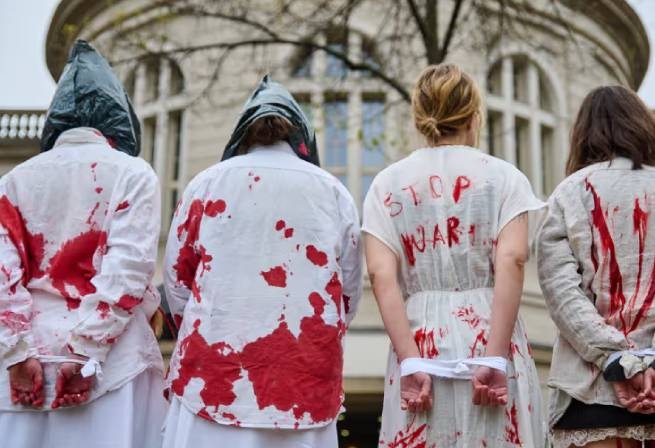

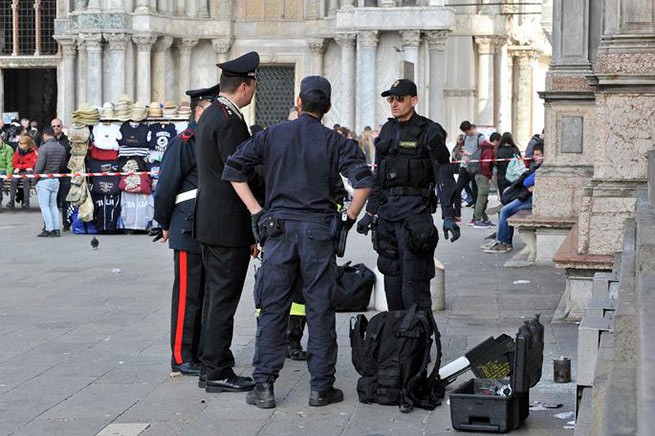
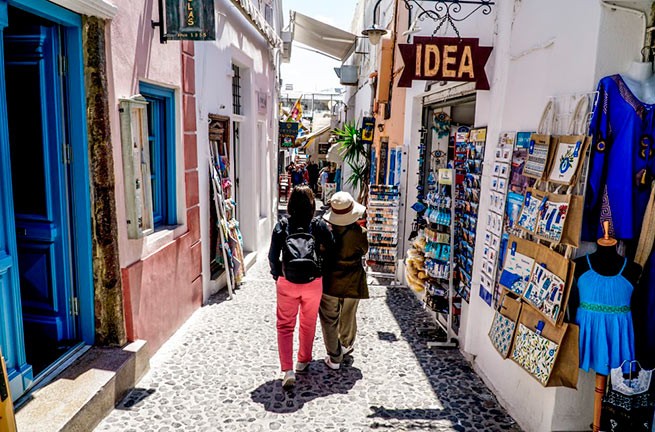
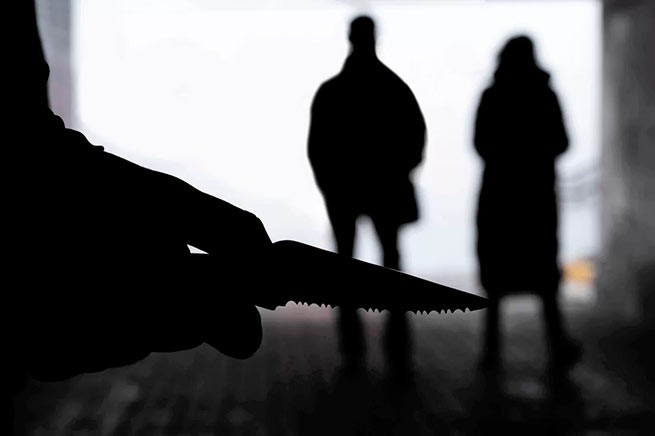
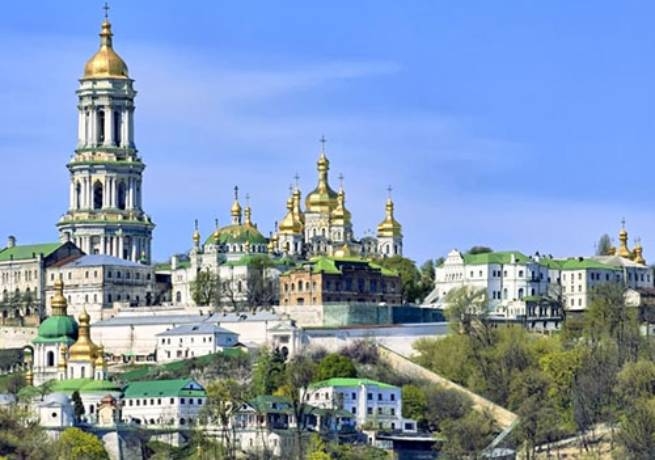

More Stories
Today the world remembers the accident at the Chernobyl nuclear power plant
A trial has begun in the case of a fatal accident involving Dora Bakoyanni's car.
Poll: which European countries are ready to defend their homeland to the last